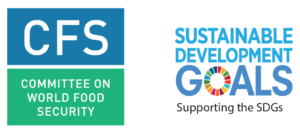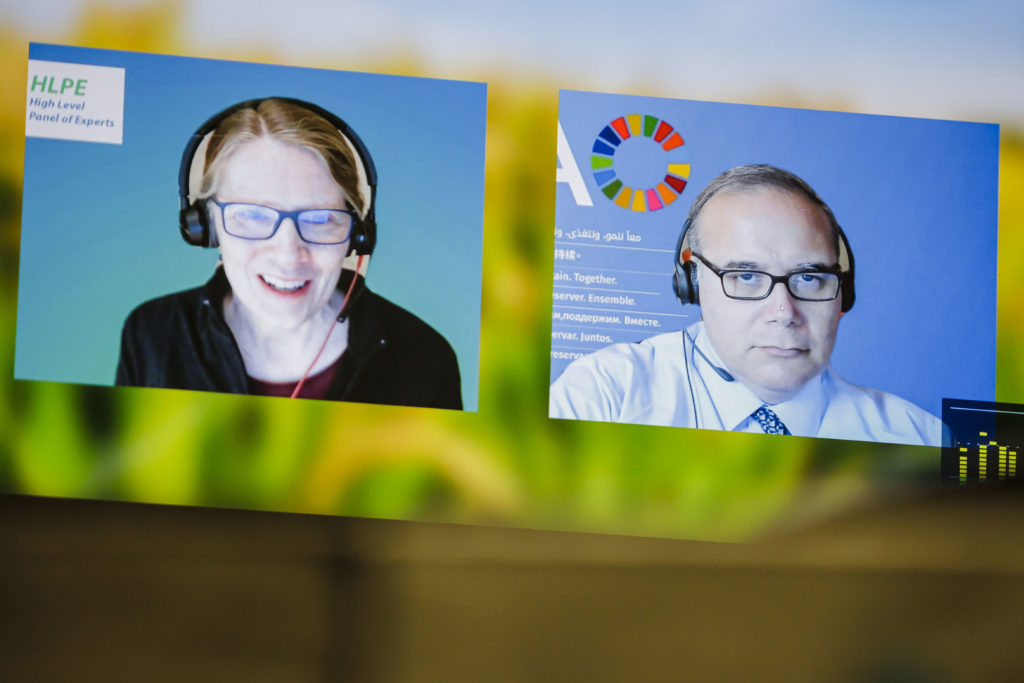Responsible Land Governance for Sustainable Food Systems: The CFS Voluntary Guidelines on Responsible Governance of Tenure of Land, Fisheries and Forests (CFS VGGT)
Committee on World Food Security (CFS)
Time: Wednesday, 26. January 2022, 11:00 a.m. – 12:30 p.m. (CET)
Background
The state of global food security and nutrition is worrying with
the latest SOFI report showing that close to 811 million people were hungry
in 2020, with healthy diets out of reach for 3 billion worldwide. With only
8 years left to 2030, SDG 2 (Zero Hunger) targets are unlikely to be
achieved in many parts of the world.
COVID-19 has added to climate change and natural resource degradation, conflicts, persisting poverty and inequalities as core drivers of food insecurity. Food systems place hard pressure on biodiversity, soils, and the environment. They are responsible for the consumption of over 70% of fresh water resources and between 21% – 37% of all greenhouse gas emissions,
These challenges associated with agriculture and food systems require urgent attention in order to achieve food security and nutrition for all. The sustainability and resilience of agriculture and food systems must be improved to reduce their pressure on natural resources and negative environmental impacts, while mitigating climate change.
In addition, healthy soils and related ecosystem services are imperative for food security, ecosystems stewardship, and biodiversity conservation. Farming practices have a crucial impact on soil fertility and health. More critically, smallholder and family farmers require access to and control over land and other resources to build the resilience and sustainability of food systems.
These issues are at the center of the CFS Voluntary Guidelines on the Responsible Governance of Tenure of Land, Fisheries and Forests (CFS VGGT), and its newest policy recommendations on Agroecological and Other Innovative Approaches.










